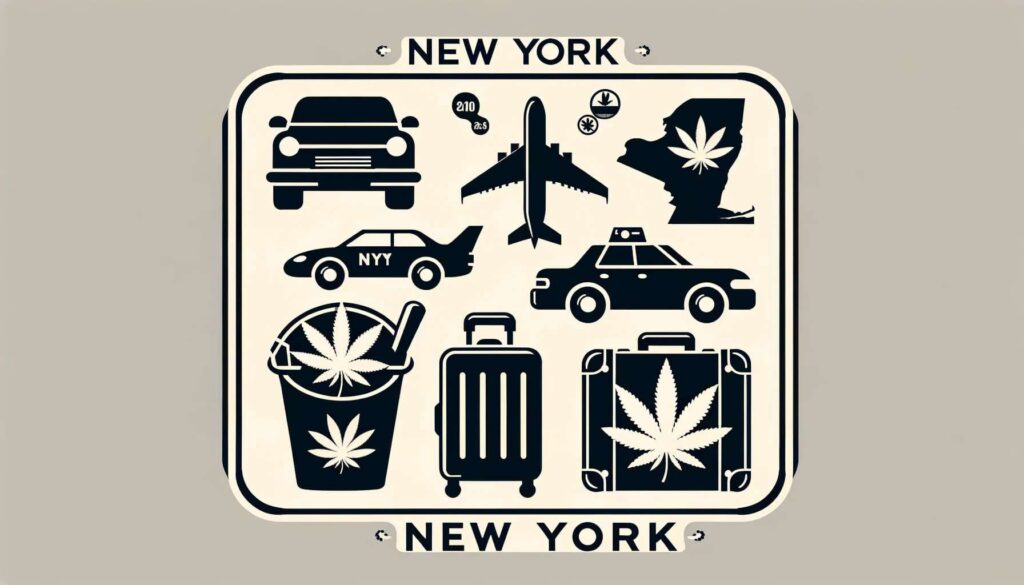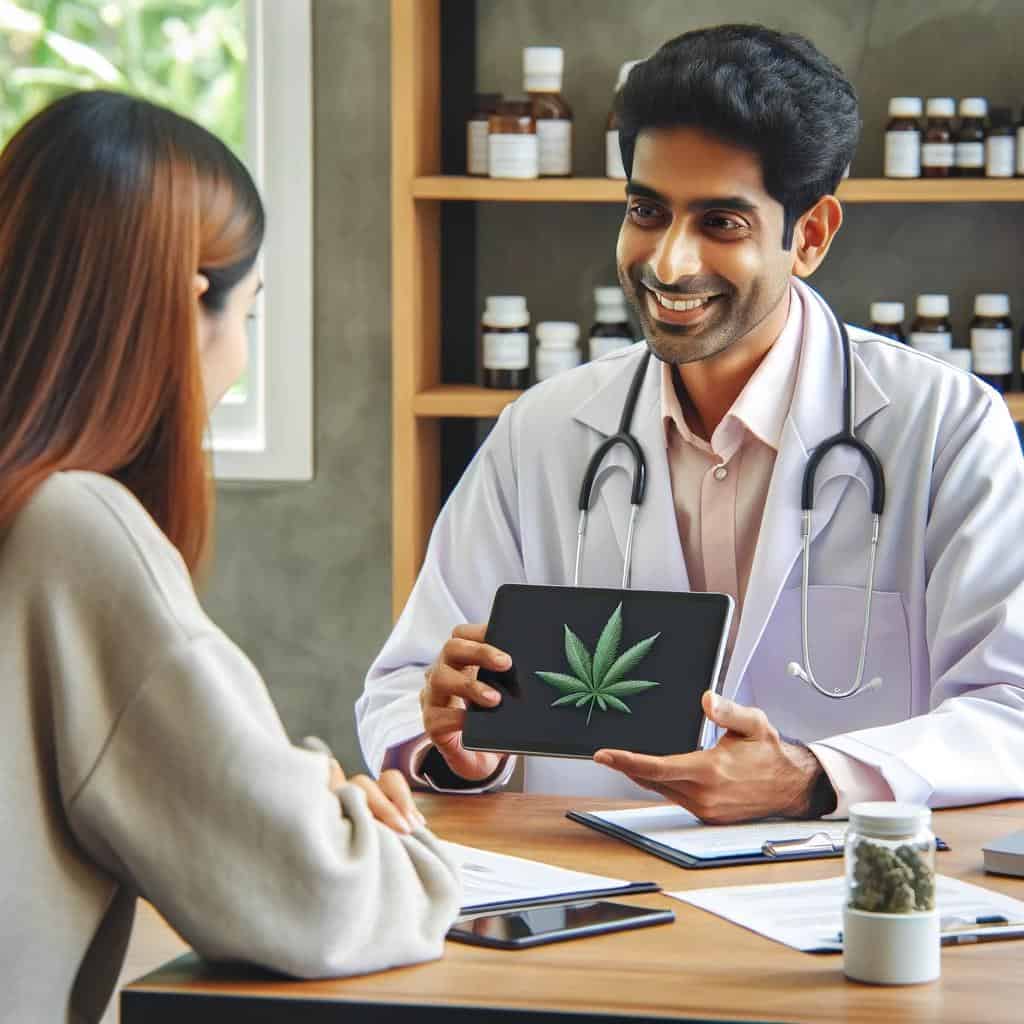- [email protected]
- (619) 304-4004
In New York, medical marijuana patients can legally transport their medication within state borders but face federal restrictions on interstate travel, necessitating careful adherence to state and federal guidelines.
Medical Marijuana in New York

In New York, medical marijuana patients must navigate specific travel and transportation guidelines to remain compliant with state and federal laws. While New York State allows registered patients to carry their prescribed medical marijuana within state borders, federal regulations prohibit transporting it across state lines. This creates a significant legal challenge, as marijuana is still classified as a Schedule I controlled substance at the federal level.
Patients are advised to carry their medical marijuana discreetly and securely, ensuring it’s stored in a way that prevents unauthorized access, especially during travel. They should also have their medical marijuana card and certification readily available to verify their legal right to possess the medication.
Public consumption, particularly smoking or vaping, is prohibited in most public places. Understanding and adhering to these guidelines is crucial for patients to safely and legally transport medical marijuana within New York.
For the most current and detailed information, patients are advised to consult the New York State Office of Cannabis Management or a legal expert familiar with New York’s medical marijuana laws. They can provide specific guidance on traveling with medical marijuana within the state, ensuring compliance with all legal requirements.
The need for specific transportation guidelines for medical marijuana arises from a combination of legal, safety, and public health considerations. These guidelines are essential to ensure that the use and transport of medical marijuana align with legal regulations and promote safe practices.
Specific transportation guidelines for medical marijuana are necessary to ensure legal compliance, maintain safety and product integrity, protect public health, and provide clear instructions to patients. These guidelines are a critical component of the medical marijuana programs, helping patients use and transport their medication legally and safely.
For the most accurate and comprehensive information, consulting state-specific medical marijuana program guidelines and legal resources is recommended. These sources offer detailed insights into the transportation rules and best practices for medical marijuana.

When it comes to in-state travel with medical marijuana in states like New York, understanding and adhering to the legal limits is crucial for compliance and safety. These limits are established to regulate the possession and use of medical marijuana, ensuring that it is used responsibly and for legitimate medical purposes.
For the most accurate and comprehensive information, consulting state-specific medical marijuana program guidelines and legal resources is recommended. These sources offer detailed insights into the transportation rules and best practices for medical marijuana within the state.
Transporting medical marijuana across state lines is a complex issue due to the interplay of state and federal laws. Here’s a detailed look at the guidelines and considerations:
Due to federal law, transporting medical marijuana across state lines is illegal and carries significant risks. Patients should exercise caution and seek legal counsel to understand the implications fully.
The interstate transportation of medical marijuana involves significant federal implications due to the current legal status of marijuana under federal law. Understanding these implications is crucial for anyone considering transporting medical marijuana across state lines.
The federal implications for the interstate transportation of medical marijuana are significant and pose substantial legal risks. Patients and caregivers should be fully aware of these risks and consider alternative solutions when traveling between states.
Guidelines for Carrying Medical Marijuana on Public Transportation in New York
The guidelines for carrying medical marijuana on public transportation in New York are outlined by the state’s laws and regulations, particularly following the Marihuana Regulation and Taxation Act (MRTA) signed into law in 2021. This act and subsequent guidelines provide clarity on how medical marijuana should be handled in vehicles and public transportation.
Handling medical marijuana in airports and on flights requires careful consideration of both state and federal laws. While some states have legalized medical marijuana, it remains illegal under federal law, which governs air travel.
For more detailed information on traveling with medical marijuana, the New York Times article on traveling with medical marijuana provides insights into the legal and practical aspects of this issue. Additionally, patients should consult legal experts or their state’s medical marijuana program for specific guidance related to air travel with medical cannabis.

When traveling with medical marijuana, proper storage is crucial to maintain its quality and comply with legal regulations. Here are some key practices and tips gathered from various sources:
When transporting medical marijuana, patients must navigate a complex landscape of legal and security considerations, especially during air travel. The Transportation Security Administration (TSA) provides specific guidelines that can help patients ensure the security of their medical marijuana during transit.
When traveling with medical marijuana, patients must prioritize security to comply with legal regulations and maintain the integrity of their medication. Here are some best practices and guidelines:
The use of medical marijuana in the workplace in New York is governed by specific laws and regulations, which address the rights and limitations of employees who are medical marijuana patients. Here are some key insights based on available resources:
Employer’s Right to Prohibit Use: Employers in New York can prohibit employees from engaging in cannabis use and take action related to the use of cannabis under certain circumstances. This includes situations where workplace safety could be compromised.
Employer’s Authority: A New York employer is free to fire, discipline, or take other adverse action against an employee who uses marijuana at work or shows up to work under the influence of marijuana. This highlights the importance of understanding workplace policies regarding cannabis use.
NYC Human Rights Law: The New York City Human Rights Law (NYCHRL) prohibits most employers from requiring job applicants to submit to cannabis testing. This law reflects the evolving legal landscape regarding cannabis use and employment in New York.
These resources indicate that while medical marijuana is legal in New York, its use in the workplace is subject to employer policies and specific legal frameworks. Employees who are medical marijuana patients should be aware of their rights and the limitations imposed by their employers, especially in relation to workplace safety and drug testing policies.
For detailed information and legal advice, consulting with legal experts and reviewing the specific workplace policies is recommended.
The employment rights of medical marijuana patients are a critical aspect of the evolving legal landscape surrounding cannabis use. Several states and cities across the United States have enacted laws and ordinances to protect the employment rights of both medical and recreational marijuana users. Here are some key insights:
Yes, registered medical marijuana patients in New York can legally transport their prescribed medication within state borders. However, they must adhere to possession limits and ensure the marijuana is securely stored and not used while driving.
While carrying medical marijuana on public transportation is not explicitly prohibited, it’s important to keep it securely stored and discreet. Public consumption of medical marijuana, especially smoking or vaping, is prohibited.
Medical marijuana should be stored in a secure, locked container. This prevents unauthorized access and maintains the integrity of the medication. It’s also advisable to keep it in its original packaging with labels.
Airports and commercial airlines fall under federal jurisdiction, where marijuana remains illegal. It’s generally advised not to bring medical marijuana to airports or on flights to avoid legal issues.
When traveling with medical marijuana, carry your medical marijuana card and a doctor’s recommendation or certification. These documents are essential for verifying your legal right to possess and use medical marijuana.
Navigating the travel and transportation guidelines for medical marijuana in New York requires a keen understanding of state and federal laws. Registered patients are allowed to transport their medication within the state, adhering to possession limits and ensuring secure, discreet storage. However, they must be cautious about public consumption, which is generally prohibited.
Air travel presents additional challenges, as federal laws, under which marijuana remains illegal, govern airports and flights. Patients are advised to avoid bringing medical marijuana into federal jurisdictions to prevent legal issues. Carrying essential legal documentation, including a medical marijuana card and doctor’s recommendation, is crucial during travel.
As the legal landscape continues to evolve, staying informed and seeking expert advice when necessary is essential for compliant and safe travel with medical marijuana in New York.

A1 Marijuana Doctors is an online platform, that connects marijuana patients to marijuana doctors in their state.

A1 Marijuana doctors is an online platform that connects medical patients to medical marijuana doctors. We offer a quick & easy way to apply for a medical marijuana card in all legal states.
Social Links
Contact Us
Quick Links
Trusted By




This website does not sell medicine nor controlled substances. It is a network of doctors & nurse practitioners, not a pharmacy / dispensary.
Copyright ©2023 A1 Marijuana Doctors. All rights reserved.